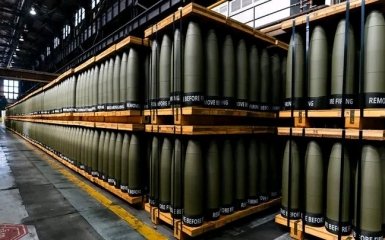The Czech Republic has already purchased about 800,000 artillery ammunition for Ukraine around the world.
What is known about the Czech Republic's efforts to provide Ukraine with ammunition
It is noted that the Czech Republic has found an additional 700,000 ammunition that can be purchased to meet the needs of the Ukrainian military.
At the same time, 300,000 ammunition are Soviet-style shells and another 500,000 are Western-made.
Representatives of the Czech government stressed that more shells will be available for Ukraine with the arrival of the necessary funds.
Czech officials promise to organize the supply of necessary ammunition to Ukraine in the near future.
According to the information of representatives of Western intelligence, currently the Ukrainian military fires only 2 shells in response to every 10 fired by the occupation army of the Russian Federation.
According to some analysts, on average, Ukraine needs up to 200,000 ammunition of various calibers to achieve superiority over the criminal army of the Russian Federation.
The article emphasizes that supplies of artillery shells from the Czech Republic can help Ukraine once again liberate the territories occupied by Russia and at the same time maintain the line of defense.
Czech officials have said that they are not focused on increasing their own production of ammunition, as is done by the United States, France or Germany, but on the purchase of already existing shells.
How the Czech Republic became an example for the USA and leading NATO countries in helping Ukraine
The authors of the material emphasize that representatives of the Czech Republic began to travel around the world without publicity, concluding sales agreements and negotiating export licenses with dozens of producing countries.
Czech officials noted that the country's post-Soviet past was an unexpected advantage.
This gave the country both a significant arms industry with global customers and good relations with many countries in the Global South with large stockpiles of Soviet-era weapons and the ability to produce more.
According to Czech officials, who do not disclose the details of agreements with other countries, among the new suppliers are allies of Russia.
Instead, according to Western officials, similar appeals by the United States and Western European countries to potential suppliers in Africa, Asia and Latin America were rejected.
Moreover, official representatives of the Alliance and the EU publicly supported the Czech initiative. Germany has so far pledged more than 500 million euros, which is by far the largest commitment.
According to Tomasz Kopiechny, the special representative of the Czech Republic for assistance to Ukraine, the approach of his country's diplomats was to mediate with the aim of providing assistance in negotiations and concluding purchase and supply agreements.
According to him, Prague approached countries that have either production facilities or compatible ammunition in warehouses and connected them with a Western country that would pay for the delivery.
The Czech Republic then organizes the logistics, sending the supplies either through its own borders or through third countries, hiding any direct connection between the country of origin and Ukraine, so as not to expose the supplier to the wrath of Moscow.
Confidentiality is key here: We talk and will talk to anyone, regardless of their allegiance or political position — with very few exceptions, such as North Korea, — said Tomas Pojar, the Czech government's national security adviser.
The country's Deputy Defense Minister Jan Zhires is convinced that Prague's efforts have revealed a discrepancy between the friendly attitude of some governments towards Russia in public and their openness to business relations with Ukraine's allies in private.
If you come with a lot of money, they are interested, and the Czech Republic is considered neutral compared to the US, which is often polarizing, explains Jakub Janda, head of the Center for European Security Policy Values, a think tank in Prague.
While major Western powers such as the US debated the dangers of sending new types of weapons to Ukraine for fear of provoking Moscow, the Czech Republic early began supplying main battle tanks, rocket launchers and large artillery pieces to Kyiv.
By the way, the carrier rocket for the missiles that sank the flagship of the Russian Black Sea Fleet "Moskva" was delivered by the Czech Republic.
It was unfortunate to observe the inaction of countries that are much richer and more powerful, when it was a matter of life or death for Ukrainians, and therefore for us, — Kopiechnyi notes.
Lange said the success of the Czech initiative was a lesson for larger NATO members who have focused on building up their own weapons production, a slow process that is now limiting supplies to Ukraine.

